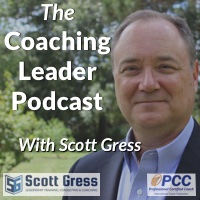

Sure you are. You are the recipient of God’s rich grace in Christ Jesus. If anyone should know, it’s you. You either proclaim it or hear it every Sunday. You are a baptized child of the King of Kings and Lord of Lords. What’s not fine with that?
Nothing. Until you aren’t. Hey, this current social and political and emotional culture is a huge hit on our mental, emotional and even spiritual health. I don’t care who you are. It is a drain. If you were toughing it out through bad days before, the recent times have been even more challenging.
The leadership excuse, or frankly, the lie that we tell ourselves is that we’re fine. But look yourself in the mirror and say that. It would be tough to overlook the tired eyes, the sadness, the weariness, the “where am I going to get the motivation to keep going” thoughts and attitudes that linger. That doesn’t make you a loser or somehow a failure. It makes you human.
As leader, whether you are the pastor or the congregational president or the chairperson of the board or even the mother of the family, you are also human. We are not machines. But even machines need maintenance. We as people go through cycles, every day and every week. Energy, attitude, faith, productivity all have their ups and downs. Those cycles are affected by our view of ourselves, our amount of sleep, alcohol, exercise and numerous other factors.
The failure though is in recognizing those cycles and giving ourselves some grace. Has your experience been like mine? When I have been upset or angry or frustrated, its funny how a good night sleep brings a much better attitude in the morning. A quiet time away with the Lord on a few hour retreat can make a huge difference in perspective. An afternoon or night away with our spouse can help us realize the real size of the problems.
Yet the truth is that many of us want to go it alone. We don’t want to admit our sins or our problems or worries that are getting us off track. Sometimes not to ourselves, let alone in front of another human being. Worse, we don’t want to get in another one of those conversations where they are not really listening to our hurts and frustrations. All they want to do is say “me too!” and tell one of their own stories. That doesn’t help. It feels insensitive. That in itself is draining.
Many leaders, and many pastors, are actually more introverted and so they default to being alone in the first place. Then when things get challenging they end up finding themselves alone to sulk or ruminate in their juices of hurt or anger or frustration. Not good.
Then when you walk out of the sacristy on Sunday morning you still see half the number of people you saw pre-pandemic. You feel like somehow you’ve messed up and your are not measuring up. The lockdowns were brutal on your schedule and your stamina and now you feel like you have to do more than ever just to get things back to close to where they were before. It’s not surprising that you are drained and tired before you even get started.
The denial though is to put on that forced smile and say, “I’m fine.” But it’s likely not true. The clue is the frequency of that bottle getting empty or the lingering that you do on that web page. Then there’s the number of times you are putting off your work or writing your sermons late on Saturday. Something has changed. So how can you be proactive and brave in looking into that?
God put us into a church, a fellowship, a gathering of relationships. We were built to connect and to re-connect with people. Even if you are an introvert those relationships are critically valuable to us. And no, it isn’t fair to just lean on your spouse. Of course it can’t just be anyone. Not everyone has the perspectives or the skills to be a partner and who knows and understands the weariness and all the emotions that you have been dealing with. Even the most healthy of us have to admit that, like Crocodile Dundee said, “we could all use more mates.” Loneliness is the hidden pandemic. But it’s time to admit that we’re not always fine. We need partners and supporters.
So what do you do? Here are some coaching questions for you to consider:
- How can I nurture a few more relationships?
- Who can I sit down with and be more honest in my conversations?
- Who can listen and care?How can I in turn be a friend like that to one of my colleagues or leaders?
- Who is a therapist for a first visit to explore these things in a safe space?
- How helpful would it be to schedule a sample coaching call with a professionally certified coach to begin to think through things out loud?
- What will you do?
Rev. Scott Gress is believes in Growing People for Ministry by focussing on leadership, discipleship and teamwork. Contact Scott if you are interested in him working with you or your church. A free 30 minutes sample session is available to explore how you might work best together. The Coaching Leader Podcast is also available on iTunes and his YouTube page. You can contact Scott through email scottgress@me.com or his blog page scottgress.com or at 561-542-4472
"Growing People for Ministry" Leadership + Discipleship + Teamwork
Check out the: Coaching Leader Podcast!

